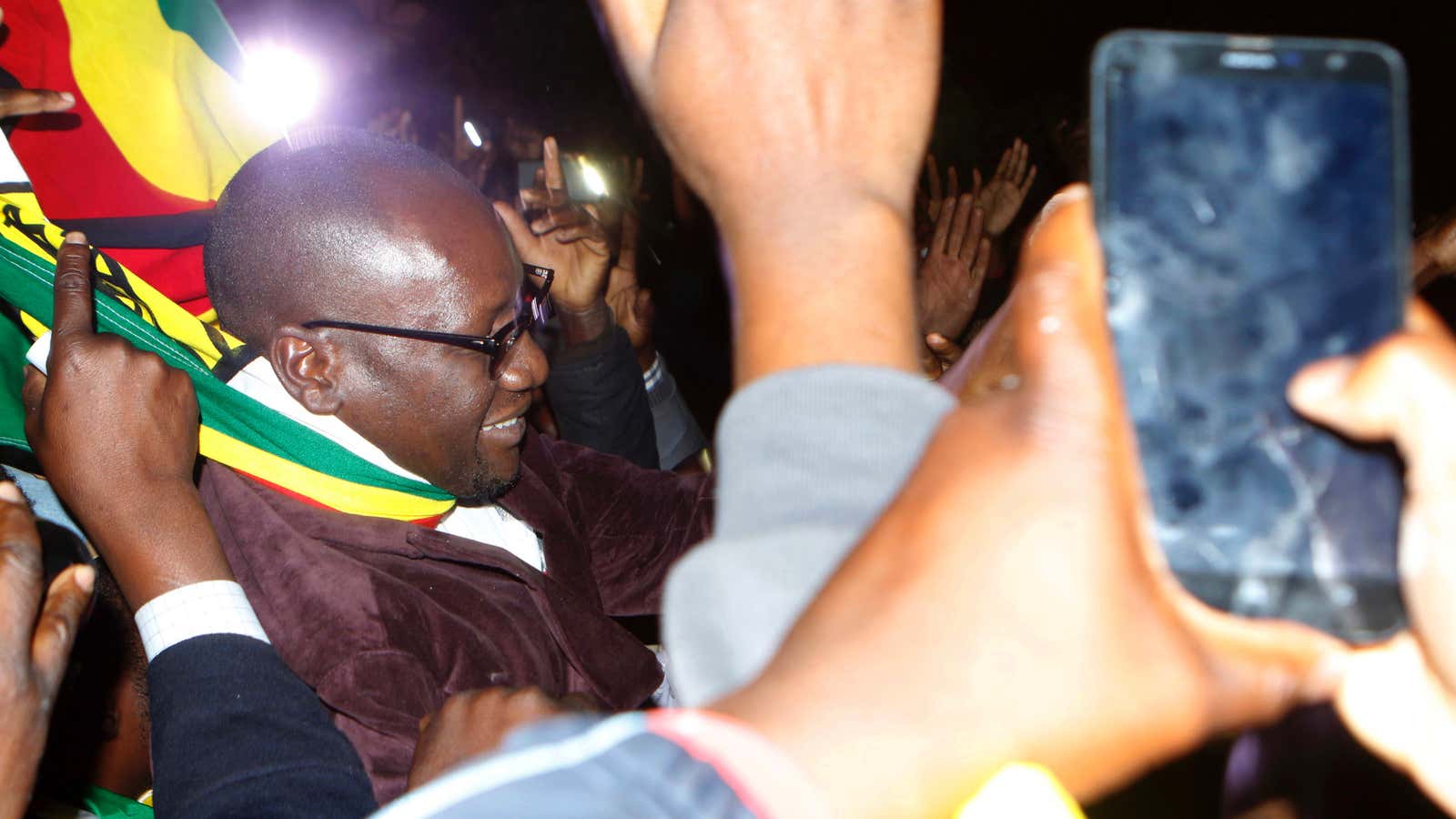Evan Mawarire, a Zimbabwean pastor instrumental in organizing recent mass anti-government protests in the country, was released from prison yesterday (July 13) after protests over his arrest mounted on social media. Mawarire’s quick release, one day after his arrest, was no small feat in a country known for crackdowns on activists.
A social media protest campaign under the hastag #ThisFlag began in the country in April after Mawarire posted a spoken word performance to YouTube. In the piece, Mawarire lamented issues like corruption, joblessness, a failed currency and mass emigration, that he says have become synonymous with the Zimbabwean flag. The campaign went viral, as Zimbabweans posted pictures of themselves with their flag, demanding that the country’s pride be restored.
Emboldened by social media and further infuriated by a law banning vital imports, delayed salaries and endless roadblocks, Zimbabweans last week staged the largest protests since contested elections in 2008, paralyzing major cities either by staying home or blocking roads. They began as a call for change in the desperate economy, but soon became braver, calling for President Robert Mugabe to step down. Not even a WhatsApp blackout could stop the popular movement.
Mawarire and his supporters planned to repeat the protest action this week, this time asking Zimbabweans to stay home from work for two days and using the hashtags #ShutDownZim 2016 and #ZimbabweShutdown. But on Tuesday (July 12), on the eve of the planned protest, Mawarire was summoned to a Harare police station, where he was arrested and detained overnight.
Prosecutors tried to charge the Baptist minister with subverting the state and inciting public violence. When Mawarire appeared in court on Wednesday, he was joined by nearly 200 lawyers, who spilled out of the courtroom in a show of support, the Daily Maverick reported. Outside the courtroom, Zimbabweans who would have participated in this week’s protests gathered, calling for Mawarire’s release. After hours of arguing and numerous adjournments, a judge ruled late in the evening that his arrest a day earlier was unconstitutional, the African News Agency reported.
The very public social media groundswell behind Mawarire was instrumental in his safe release. Zimbabwe’s police have typically responded to protest action with brutal force, and last week was no exception, according to reports. In 2007, opposition leader Morgan Tsvangirai was badly beaten after being arrested by police. The disappearance of newspaper reporter-turned-activist Itai Dzamara was also on people’s minds. Dzamara has not been seen since unknown assailants bundled him into a car in March last year. Before his disappearance, Dzamara held a sit-in protest in Harare, called Occupy Africa Unity Square, holding up a poster declaring “Mugabe must go.”
Once a poster of post-independence success, Zimbabwe was known as Africa’s breadbasket for its successful post-independence agricultural production and its high literacy rate. But the policies of its 92-year-old leader, now in his 36th year as president, and ruling party, the ZanuPF, have left the country bankrupt and floundering.
Last week’s protests were some of the most overt anti-Mugabe protests Zimbabwe has seen since independence. With 90% unemployment, the vast majority of Zimbabweans earn a living in the informal economy as vendors and traders. A new law banning the import of goods sold by vendors—like peanut butter, canned fruit and body lotions, from neighboring countries—incensed residents. Unpaid civil servants also joined in, as did taxi drivers fed up with police roadblocks they say are fronts for extortion.
“Zimbabwe may be witnessing a change in the idea of citizenship,” wrote Brian Raftopoulos of the Solidarity Peace Trust, an NGO working on human rights issues in Zimbabwe. “In the coming period it will be important to track not only the future of such activism but, just as importantly, the responses of the state beyond the current brutality of the police interventions.”
